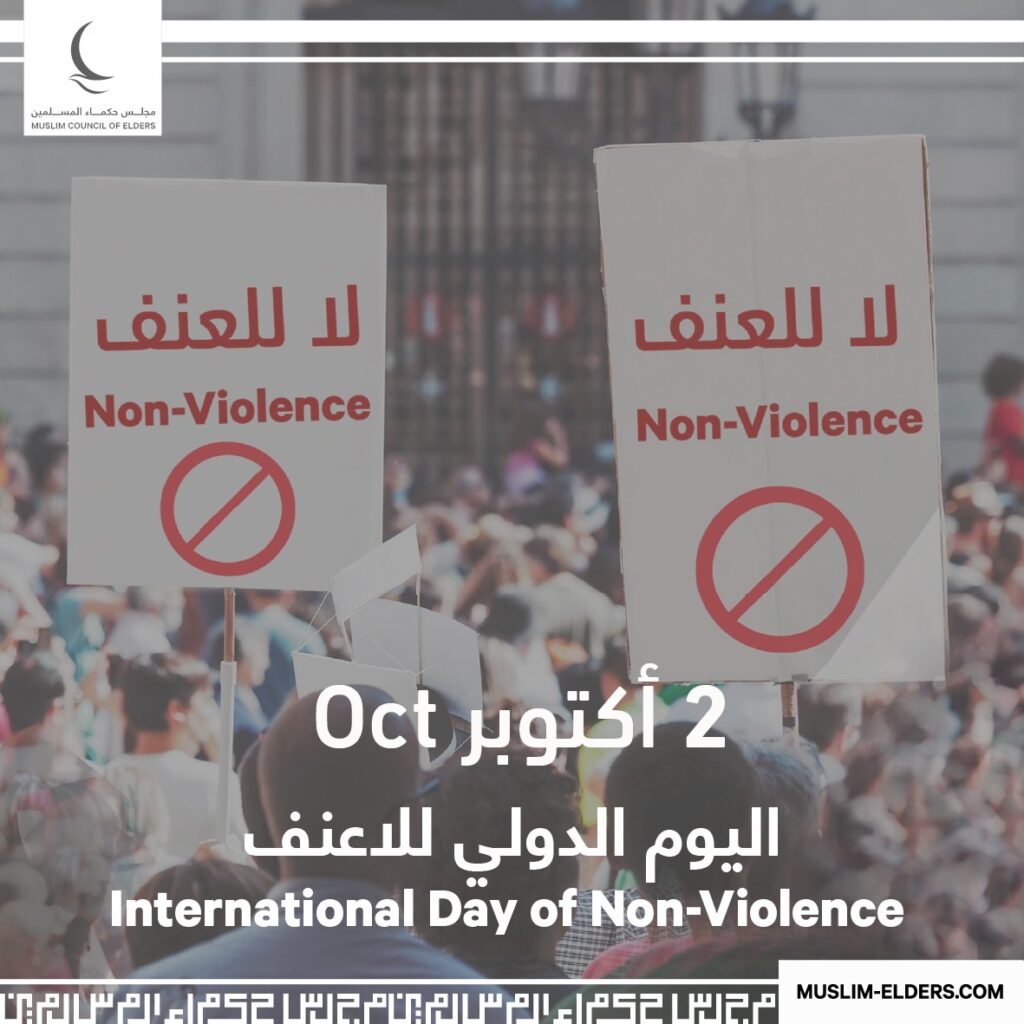The Muslim Council of Elders, chaired by His Eminence Prof. Dr. Ahmed Al-Tayeb, Grand Imam of Al-Azhar, affirmed on the occasion of the International Day of Non-Violence — observed annually on October 2 — its categorical rejection of all forms and manifestations of violence. The Council stressed that our world today is in greater need than ever of promoting a culture of dialogue, understanding, and mutual respect.
In its statement marking this occasion, the Council emphasized that the message of Islam is one of mercy and peace, as God Almighty says: “We have sent you ˹O Prophet˺ only as a mercy for the whole world” (The Qur’an, 21: 107). It further affirmed that all divine religions and heavenly laws have never been messengers of violence, wars, or conflict, but rather calls to love, tolerance, and peaceful coexistence.
The Muslim Council of Elders continues to exert great efforts to confront all forms of violence, extremism, hatred, intolerance, and Islamophobia. It consistently calls for the promotion of peace and the spread of values of dialogue, coexistence, and mutual respect through various global initiatives. Among these are the Emerging Peacemakers Forum (EPF), the Student Dialogues for Human Fraternity program, and numerous international conferences that affirm the principles of citizenship, respect for diversity and pluralism, and the call for peace and dialogue — including East–West and intra-Islamic dialogue.
The Document on Human Fraternity, signed in Abu Dhabi in 2019 by His Eminence Prof. Dr. Ahmed Al-Tayeb, Grand Imam of Al-Azhar and Chairman of the Muslim Council of Elders, and the late Pope Francis, Head of the Catholic Church at the time, underscores the necessity of rejecting violence, hatred, and intolerance. It calls for spreading a culture of dialogue and coexistence as the only path to safeguarding human dignity and building a secure and peaceful future for all humanity.

